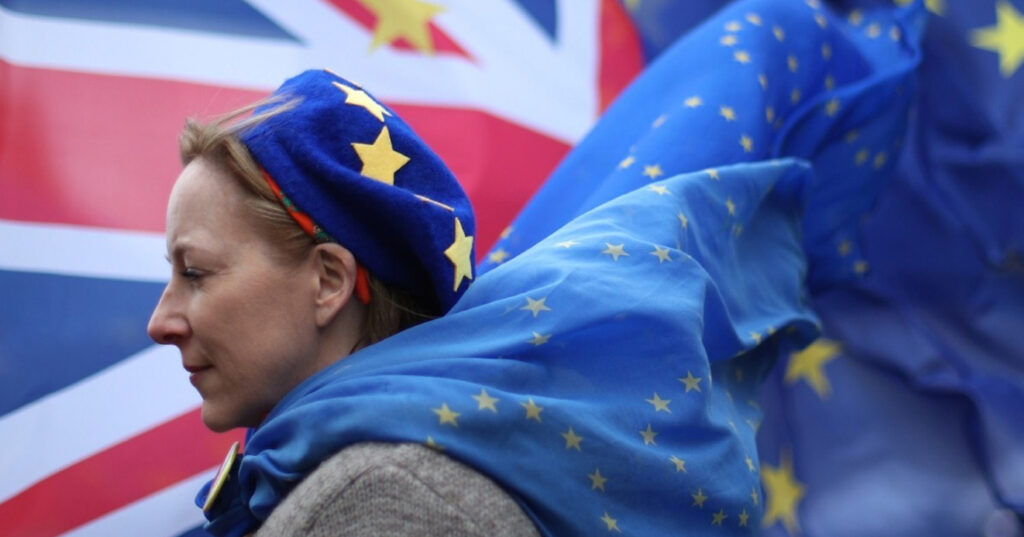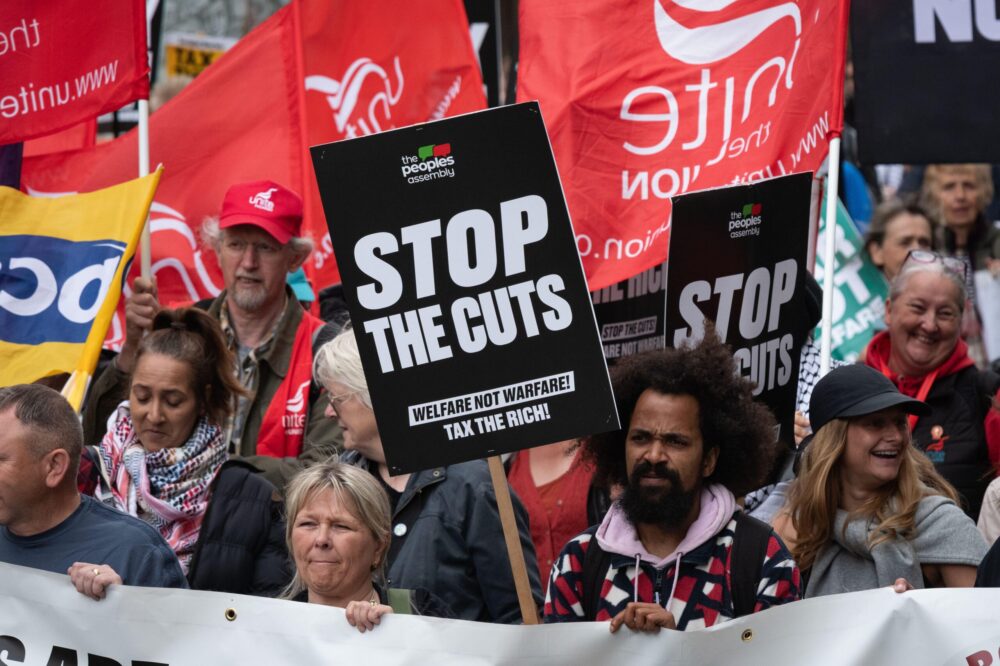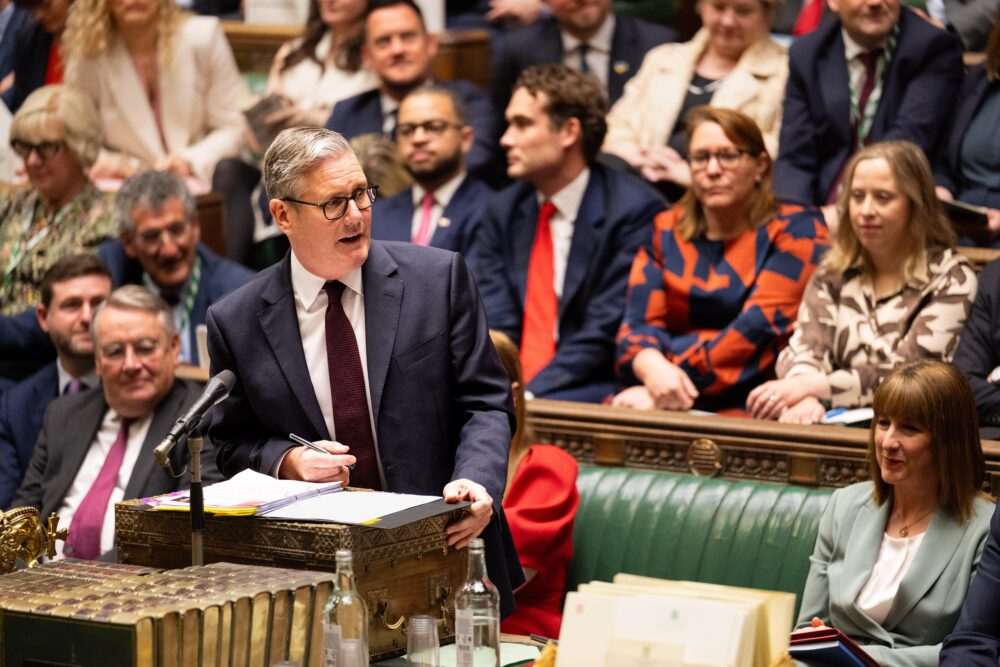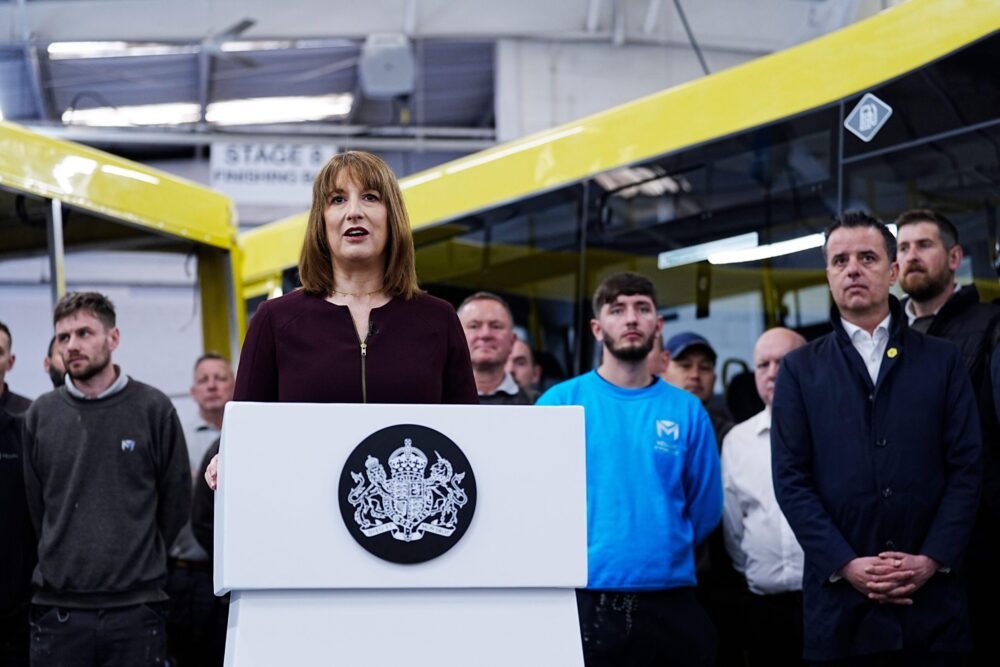
As last week’s parliamentary drama unfolded, I decided to find out how things seemed to the people on whose behalf it was supposedly being enacted – namely the voters, in the shape of focus groups in Barnet and St Ives.
It was no surprise that people were sharply divided over their new Prime Minister. For many Labour voters he was “dangerous”, a “charlatan”, “bullying”, “running the country into the ground” and “trying to baffle people with poshness;” “he’d be an amazing character if he was fictional.” But Conservative remain voters also had mixed views: while some thought he was divisive, dictatorial and untrustworthy (“I don’t think he’s as proper as some MPs – he can probably go rogue”), for others he was colourful, “flavoursome” and “quite statesmanlike compared to the rest. If you think about how Britain is presenting itself on the international stage, who else would have the personality and persona to stand up and be heard?” “His inauguration speech was actually quite rousing. I thought, we are where we are, but he’s got the right attitude, he wants to try and fix some things.”
A few were less positive than they had once been: “initially I felt it was a good thing, but after what’s happened in the past 24 hours I don’t know. He’s playing a very dangerous game and I’m concerned the game he’s playing could hand the keys to Jeremy Corbyn, which is my worst nightmare;” “There is a sinister side underneath the foppish hair that I didn’t think was there.” The notable thing about that view, though, was that it was rare: most seemed to feel much as they as they had previously done, only more strongly. For Leave voters he was “realistic,” “robust,” “a doer,” “more proactive,” “bombastic” in a good way and “kind of like Trump – he’s going to make some changes and make things happen.”
On issues other than Brexit, people had heard the new government promise money for the NHS, schools, universities, the police and social care. It is fair to say that this agenda had been taken with a very considerable pinch of salt on all sides. “If he came though it would be fabulous” but “he’s promising the moon on a stick;” “He will say anything we want to hear. Where’s it coming from, the money? Who knows. All we hear is that the pot is running dry. Is he banking on not paying the £39 billion divorce bill, is he playing that card?” “I worry because the Tory government has cut a lot of things, so is this a new Conservative policy? I’m a bit confused about the policy of his party.”
On Brexit, the policy was completely clear, for good or ill: “He wants to get it done;” “I don’t like him, but I like that he’s pretty stern and wants to do what the country voted for.” Johnson’s determination to leave on October 31 come what may was well known, but most thought he would much rather do so with a deal than without, if only to show he could succeed where Theresa May had not: “I’m sure Boris would rather have the security of some sort of trade deal, and also for his own ego and press. He wants to be able to say where Theresa May failed, he’s on the front pages shaking Macron’s hand. He wants to be the hero, the one who came in and fixed it all.”
Most participants on all sides were sceptical that a no-deal Brexit would be as bad as the worst predictions had suggested – “I can’t believe Europe won’t want our spending power” – and a good deal of scaremongering was in the air (although for no discernible purpose: “you can scaremonger us all you like, we’re not the ones making the decisions”). Ultimately, nobody knew what would happen and “so much nonsense has been spoken that the truth gets lost. It’s very difficult to know what to believe and what sources to trust.”
For many leavers, the bigger fear was that despite the PM’s do-or-die attitude, Brexit still would not happen by the Halloween deadline: “My concern is, will he go through with it? I’m a bit sceptical. They say they will do this and then something else will change;” “I like the idea of us pulling out on 31 October but the chances of it happening are minute.” This had ominous implications for the Conservatives: “If we don’t leave by 31 October, I’ll have no confidence on anything else. They haven’t done what they promised us;” “He’s made such a song and dance about this deadline, he’s hanging himself out to dry.”
Asked who was responsible for the parliamentary impasse, neither remainers nor leavers distinguished between the parties or factions: “It’s all of them. The politicians should have dealt with it in a more professional and grown-up way.” After all, “parliament came to the country. MPs were voted into parliament and they should work together to get us out”.“All the parties are so split. Even half the Cabinet don’t agree with what he says;” “Both sides lied in the referendum. It’s led to the public not knowing who they can trust.” Touchingly, some thought they should still be able to expect better from their elected representatives: “They might all be lying cheating thieving bastards but they should set an example.”
Even among Remain voters, there were mixed views about the prospect, since realised, of a law to take a no-deal Brexit off the table. Undesirable though no deal might be, people wondered what the point of another extension would turn out to be: “We’re only going go drag everything out with zero result. Nothing’s changed since March, nothing’s changed since June. End it!” “I don’t have any faith that saying 31 January will mean we leave on 31 January.”
Despite their exasperation with parliament, one thing that united all our participants was that none of them wanted to see an early general election. Going to the country again would be a waste of time, money and energy when what was needed was for the current parliament to do its job: “the country’s already voted! We’ve made our decision, we’ve made our choice.” Most also doubted that an election would change the situation, or at least not for the better: “The two main parties will lose, the smaller parties will gain, and chaos will rule;” “We’ll have lots of strange parties doing strange deals. I would rather get it done with.” Labour-voting remainers tended to come to the same conclusion from a different angle: “I would love another election to remove Boris from power, but I don’t want it used in a way to barter against Brexit.”
More poignantly, it was also clear that many – mostly among those who had voted Leave, but certainly not exclusively – had become so demoralized as to wonder whether voting was worth bothering with. “What’s the point? We’ve done the big thing, the referendum, and it was totally ignored;” “People had a chance to vote, and it’s as though that didn’t count for anything. Public opinion is going down the drain. It is a mockery – three years later we’re still debating if it’s happening or not. It’s embarrassing really;” “I’m not sure anyone’s going to vote because faith has gone. When they give you the right to vote and you don’t get listened to…”
Though they had a firm grasp of the bigger picture, most had better things to do than follow the relentless stream of breathlessly breaking news. Jo Johnson was a case in point. Had anyone heard of him? “It rings a bell. Is he a singer?” You might be thinking of Jack. “Is he Boris’s brother?” Was that a guess? “It was actually.” Those who had noticed the brotherly resignation tended to see it as a dignified and even compassionate move (“and there’s not much of that about”) to avoid a public dispute between the pair, in striking contrast to the Milibands. Still, “Christmas is going to be awkward.”
There was some sympathy for the Conservative MPs removed from the parliamentary party for voting against the whip on Tuesday (not least because “they’re doing to Boris what he did to the previous PM”): “It’s not very ethical – what an awful position to be in, losing your job or compromising your morals;” “They should be allowed to say what they want and not be outed.” If anything, though, the balance of opinion was that the rebels knew what they were letting themselves in for given the PM’s resolve: “He’s trying to get things done. They were warned;” “I don’t think he had a choice, because very early in his time as Prime Minister he couldn’t be seen as being soft on them. I don’t like him but we need someone strong.”
In this respect there was a chasm between Boris Johnson and Jeremy Corbyn, whose position on Brexit remained opaque to say the least: “This week it’s stay in and last week it was come out;” “Haven’t a clue;” “He’s so indecisive he keeps changing his mind;” “He’s been tactical for too long. Everyone at one point was mad for him, but now he’s lost all that.” Even among our 2017 Labour-voting participants there was very little support: “He was elected on a wave and that wave is no longer there;” “I’m a Labour person but Corbyn does scare me a bit. I don’t think he’s got what it takes to run the country.”
For uncommitted remainers, if it came to a choice between a no-deal Brexit and a Corbyn-led government there would be no contest: “A Corbyn government would be worse. I would actually be scared;” “My fear is the rise of the trade unions from the 1970s, which we know he’s a darling of;” “His views are so extreme. I still remember him standing on the stage with Sinn Fein after they blew up the pub in Birmingham, and I can’t get past that;” “I can’t think of one statesmanlike quality he has that a leader should have.”
The Liberal Democrats, meanwhile, had installed a new leader since some of our Cornish participants had voted for the party in 2017. Could they identify the individual? “I think they’re male.” No. “Has she got short hair?” No. It’s Jo Swinson. Blank faces. “Well she hasn’t made much of an impact if she’s new. I’ve never bloody heard of her.”
Another thing our St Ives Lib Dem voters had in common was that they had also voted Leave in 2016. Didn’t this seem like a contradiction, voting for a party that wanted to stop Brexit, which they supported? “I’d never thought of it like that. We’re a funny breed down here. If there’s someone good in the constituency that you’ve heard of… If David Penhaligon was still alive, he’d probably still be an MP today.” Moreover, as Theresa May learned to her cost, elections are never about only one issue, however much politicians might want them to be: “It boils down to all the things that affect the public – families, the future, kids growing up…” Still, “I’m not sure that any of that will matter this time. Brexit is such a big monster, everything else pales into insignificance. It’s all anyone talks about.” The Lib Dem position on Brexit was at least clear: “They want to remain. At least they have been honest. But it’s not a very good start, is it – ‘however you vote, we want to stay in’.” Most said they would probably switch away from the party in an early election: “The only way the Liberals are going to get into power is if there’s a hung parliament, and that’s not really working.”


